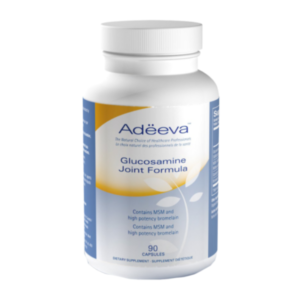
Glucosamine: A Potential Shield Against Cancer
Source: Journal, Frontiers of Nutrition (November 2022)
Lifestyle Medicine Update (July 18, 2023)
Introduction: The Glucosamine Revelation:
In the labyrinth of health supplements, glucosamine emerges as a beacon of hope, offering not just joint support but also a surprising defense against cancer. In a groundbreaking revelation unveiled in 2020, the Annals of Rheumatology disclosed that regular intake of glucosamine supplements was linked to a substantial reduction in cancer mortality alongside a myriad of other health benefits. This tantalizing discovery set the stage for further exploration into glucosamine’s anti-cancer properties, leading to a pivotal update from the UK Biobank study in 2022.
UK Biobank Study: Unveiling Glucosamine’s Cancer Armor:
Heralded as one of the largest population studies globally, the UK Biobank study embarked on a mission to unravel the mysteries of glucosamine’s potential as a shield against cancer. With a cohort exceeding 500,000 individuals, ranging from 38 to 73 years old, the study meticulously traced their health trajectories from 2006 to 2010 until March 2021, none bearing the burden of cancer at the study’s inception. The resounding verdict? Glucosamine users exhibited a remarkable array of benefits, including a 5% reduction in overall cancer risk and staggering declines in specific cancer mortalities, such as kidney, lung, and rectal cancers.
Glucosamine’s Anti-Cancer Arsenal:
Delving deeper into the realm of molecular biology, glucosamine unveils a potent arsenal against cancer. In laboratory settings, glucosamine flexes its anti-cancer muscles, inhibiting the proliferation of various human cancer cells, orchestrating programmed cell death (apoptosis), thwarting tumor drug resistance, impeding tumor blood vessel formation, and curtailing cancer cell invasion into neighboring tissues. The synergy of these mechanisms paints a compelling picture of glucosamine’s prowess in combating cancer’s insidious advance.
Glucosamine Availability and Usage: Empowering the Masses:
Accessible as both a prescription drug in Europe and an over-the-counter supplement in Australia, the US, and Canada, glucosamine offers a versatile armor against cancer to a global audience. While usage rates vary across regions, with approximately 20% of Australian adults embracing glucosamine, its adoption remains relatively modest in the US and Canada. However, armed with the knowledge of its anti-cancer potential, a surge in its usage may be on the horizon.
Complementary Natural Agents: Enhancing Glucosamine’s Arsenal:
Some glucosamine formulations marry its might with three natural anti-inflammatory agents—Quercetin, Bromelain, and MSM—each boasting their own anti-cancer properties. This synergistic blend not only fortifies glucosamine’s anti-cancer armamentarium but also amplifies its overall health benefits.
Recommendation: Harnessing Glucosamine’s Potential:
As the body’s natural glucosamine production wanes around the age of 40, embracing a glucosamine supplement enriched with natural anti-inflammatory allies may serve as a proactive step towards cancer prevention and overall well-being. With mounting evidence illuminating glucosamine’s multifaceted benefits, its integration into daily health regimens emerges as a prudent choice for individuals seeking to defy the odds of cancer mortality.
References:
- Zhou J et al. *Association between glucosamine use and cancer mortality: A large prospective cohort study.* Front Nutr. 2022. [Link](https://www.frontiersin.org/articles/10.3389/fnut.2022.860199/full)
- Li Z-H et al. Associations of regular glucosamine use with all-cause and specific mortality: a large prospective cohort study. Ann Rheum Dis. 2020; 79(6): 829-863. [Link](https://ard.bmj.com/content/79/6/829)
- Bromelain Anti-cancer Properties: [Link](https://www.ncbi.nlm.nih.gov/pmc/articles/PMC3529416/)
- Quercetin Anti-Cancer Properties: [Link](https://www.ncbi.nlm.nih.gov/pmc/articles/PMC3669737/)
- MSM Anti-Cancer Properties: [Link](https://www.ncbi.nlm.nih.gov/pmc/articles/PMC5372953/)
Eat Smart, Live Well, Look Great,
Dr. Meschino
Glucosamine and Reduced Cancer Risk
In 2020, a published paper in the Annals of Rheumatology reported that regular use of glucosamine supplements was associated with:
- A significantly reduced risk of dying from cancer, cardiovascular, respiratory, and intestinal tract diseases.
- A 15% reduction in all-cause mortality compared to non-users of glucosamine supplements.
The data was derived from approximately 500,000 individuals being followed in the UK Biobank study.
UK Biobank Study Update on Glucosamine and Cancer
- In November 2022, the UK Biobank study was updated and published in the Frontiers of Nutrition journal, with a specific focus on glucosamine’s potential protective role against cancer.
- The UK Biobank study is one of the largest population studies in the world, aiming to improve disease prevention, diagnosis, and treatment, as well as promote health across society.
- The original study included over 500,000 participants from the UK, aged 38 to 73, who were followed from 2006 to 2010 until March 2021. None of the participants had cancer at the study’s beginning.
- After controlling for other cancer risk factors, the study showed that individuals who routinely took glucosamine supplements exhibited significant benefits:
- 5% decrease in overall cancer risk
- 32% lower risk of kidney cancer mortality
- 16% lower risk of lung cancer mortality
- 24% lower risk of rectal cancer mortality
Glucosamine and Anti-Cancer Properties
Glucosamine has shown important anti-cancer properties in experimental and animal studies, including:
- Inhibition of proliferation in various types of human cancer cells
- Inducing programmed cell death (apoptosis) in many cancer cell types
- Reversal of tumor drug-resistance
- Inhibition of tumor blood vessel formation (anti-tumorigenesis)
- Blocking cancer cells’ ability to invade neighboring tissues by inhibiting destructive enzymes (matrix metalloproteinases)
Several epidemiological studies in the US and the UK have indicated that glucosamine is linked to reduced cancer mortality, with some studies reporting a 15% reduction in overall cancer risk.
Glucosamine Availability and Usage
- Glucosamine is available as a prescription drug in most European countries but as an over-the-counter supplement in Australia, the US, and Canada.
- Usage rates vary, with about 20% of Australian adults using glucosamine supplements, approximately 2% of US adults, and an estimated 5-7% of the adult population in Canada.
Complementary Natural Agents
Some glucosamine supplements contain three natural anti-inflammatory agents (Quercetin, Bromelain, and MSM), which have their own unique anti-cancer properties in various studies.
Recommendation
- Based on the evidence, it may be beneficial for individuals to consider taking a glucosamine supplement with natural anti-inflammatory agents around the age of 40, as this is the time when the body naturally produces less glucosamine.
References
- Zhou J et al. Association between glucosamine use and cancer mortality: A large prospective cohort study. Front Nutr. 2022. 9 Link
- Li Z-H et al. Associations of regular glucosamine use with all-cause and specific mortality: a large prospective cohort study. Ann Rheum Dis. 2020; 79(6): 829-863. Link
- Bromelain Anti-cancer Properties: Link
- Quercetin Anti-Cancer Properties: Link
- MSM Anti-Cancer Properties: Link
Recommended Supplements

Dr. James Meschino
ABOUT THE AUTHOR
Dr. James Meschino, DC, MS, ROHP, is an educator, author, and researcher having lectured to thousands of healthcare professionals across North America. He holds a Master’s Degree in Science with specialties in human nutrition and biology and is recognized as an expert in the field of nutrition, anti-aging, fitness, and wellness as well as the author of numerous books.


